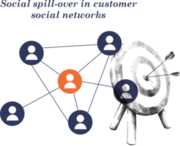Senegal’s population growth rate in 2016 was substantial at 3%, and currently 60% of the country’s population is under 25 years old. Every year more and more young people are entering a labor market that is struggling to make room for them. In fact, 74% of young graduates and 41% of individuals with no proper training are unemployed. More generally, only one in five people work full-time in the formal sector(1) in Senegal. As a direct consequence, many young people think that exile is the only way out. Given the ineffective nature of economic development assistance, entrepreneurship – which is already highly advanced in this part of the world – could offer real potential. Senegal, where the GDP growth rate was over 6% in 2016, is a country with numerous strengths. It is exceptionally stable in political terms compared to its neighbors, and it serves as a regional bridgehead for new technologies, making it one of the most dynamic countries in West Africa.
Advantages to setting up business and investing in Senegal
“The market is still young,” explains Lebas, “with large parts of the economy not yet built. There is no point looking for complicated business models, as there isn’t much competition and all you need to do is meet the basic needs of the population”.
A second advantage is that people in Senegal are very well connected: 17.7% had access to the internet back in 2014 and almost everyone has a mobile phone (2). Although few Senegalese currently have access to traditional banking services, they have taken easily to digital currency and online banks. Digital solutions, for instance, are particularly attractive for many types of street vendors. And major corporations such as Microsoft have got it right: they are in the process of training the talent they need to set up in Dakar. Sonatel (a telecommunications group) has just opened a free coding school with the backing of Orange. Incubators are already active in the country and investors are settling there.
Thirdly, Senegalese – in common with most of their African neighbors – are extraordinarily agile and creative, with the ability to reinvent themselves and “pivot”. “We met a 25-year-old who had already set up a dozen businesses,” says Lebas. “He had gone from selling chickens to selling eggs and then milk door-to-door. These entrepreneurs are very nimble: they identify a need and come up with a trick that means they can supplement their weekly income.”
Many challenges still to be met
“Although these young people may have fantastic ideas for developing their economy and helping people, they can find it difficult to draw up business plans and conform to the assessment standards used by investors,” Lebas says. “These entrepreneurs require support, otherwise their projects will remain at a very local level with limited impact and an overly short lifespan.” Current support structures need to be changed, since they favor graduate entrepreneurs who speak French well and know how to use the relevant dashboards. “The main problem isn’t the initial funding, because young entrepreneurs can do ‘quick-and-dirty’ testing,” points out Lebas. “The real difficulties come at the second stage: nothing exists between microcredit and the funding provided by large investment companies like Teranga.” Seed funding is beginning to emerge in Senegal as a way of filling this gap. But other obstacles are still putting the brakes on economic development:
• Inadequate taxation and a sizeable informal economy that hampers the development of a long-term strategic vision
• The cost of financing combined with poor roads and a lack of railways, preventing companies from serving people living outside Dakar
• Selective power cuts that deprive people of electricity and make it difficult to sell fresh produce
Strong hope remains that work from the likes of Lebas and Gaydon will contribute to a global understanding of the situation and make it possible to deliver appropriate solutions!
1- The informal sector includes all economic activities that take place on the margins of criminal, social and fiscal legislation or that elude the National Accounts.
2- According to the latest quarterly report on the telecommunications market by the Autorité de Régulation des Télécommunications et des Postes (ARTP), the penetration rate (the total number of mobile phone lines divided by the population) for mobile phones was 109.70% in Senegal as of June 30, 2015.









